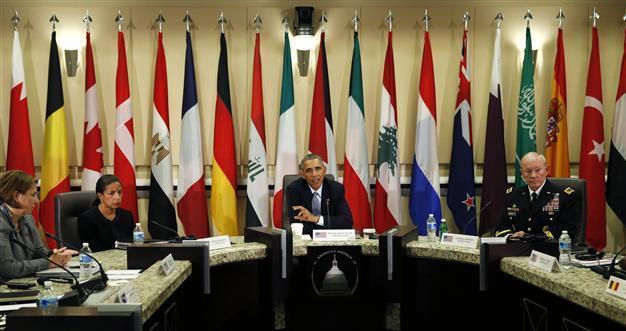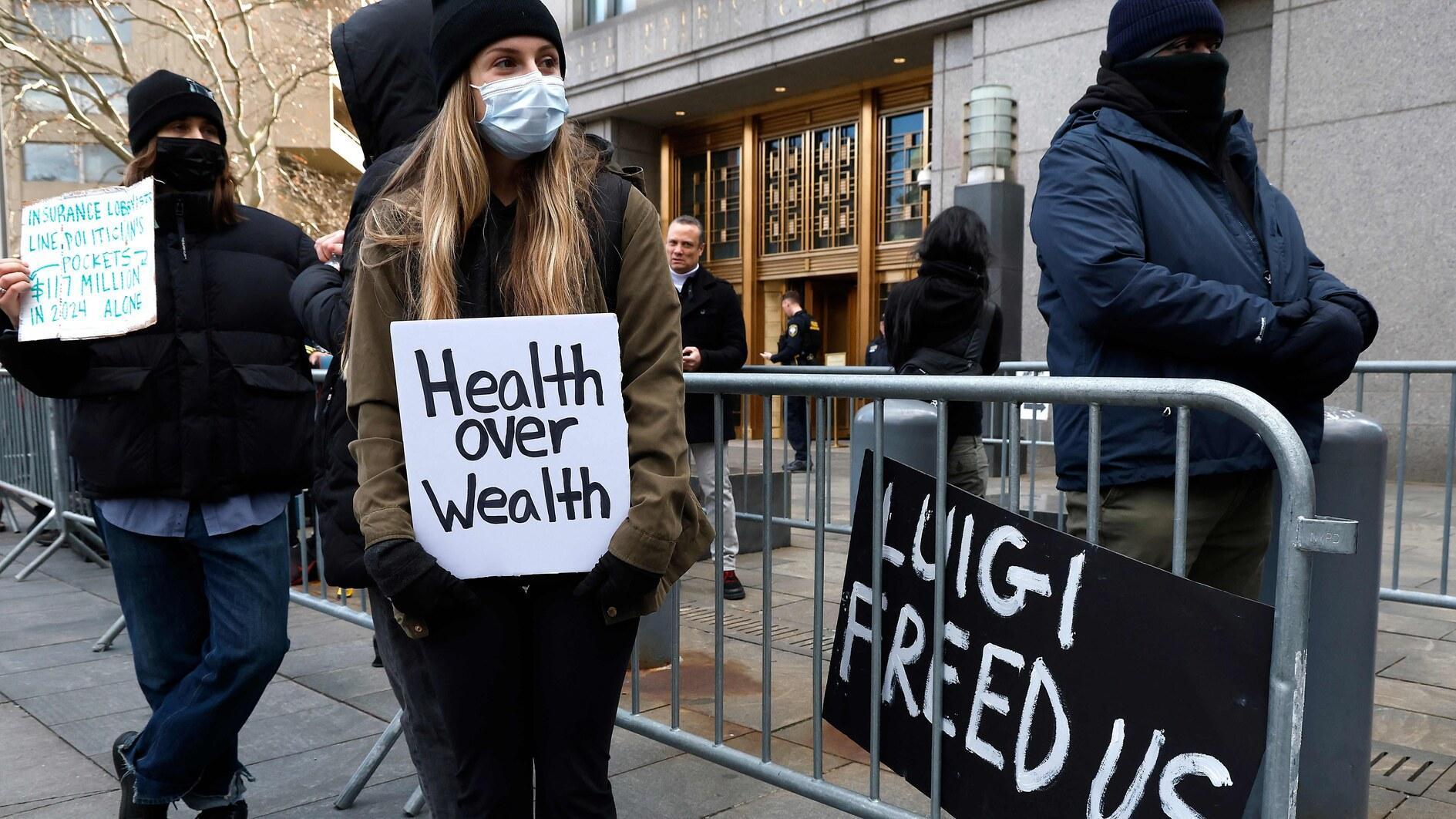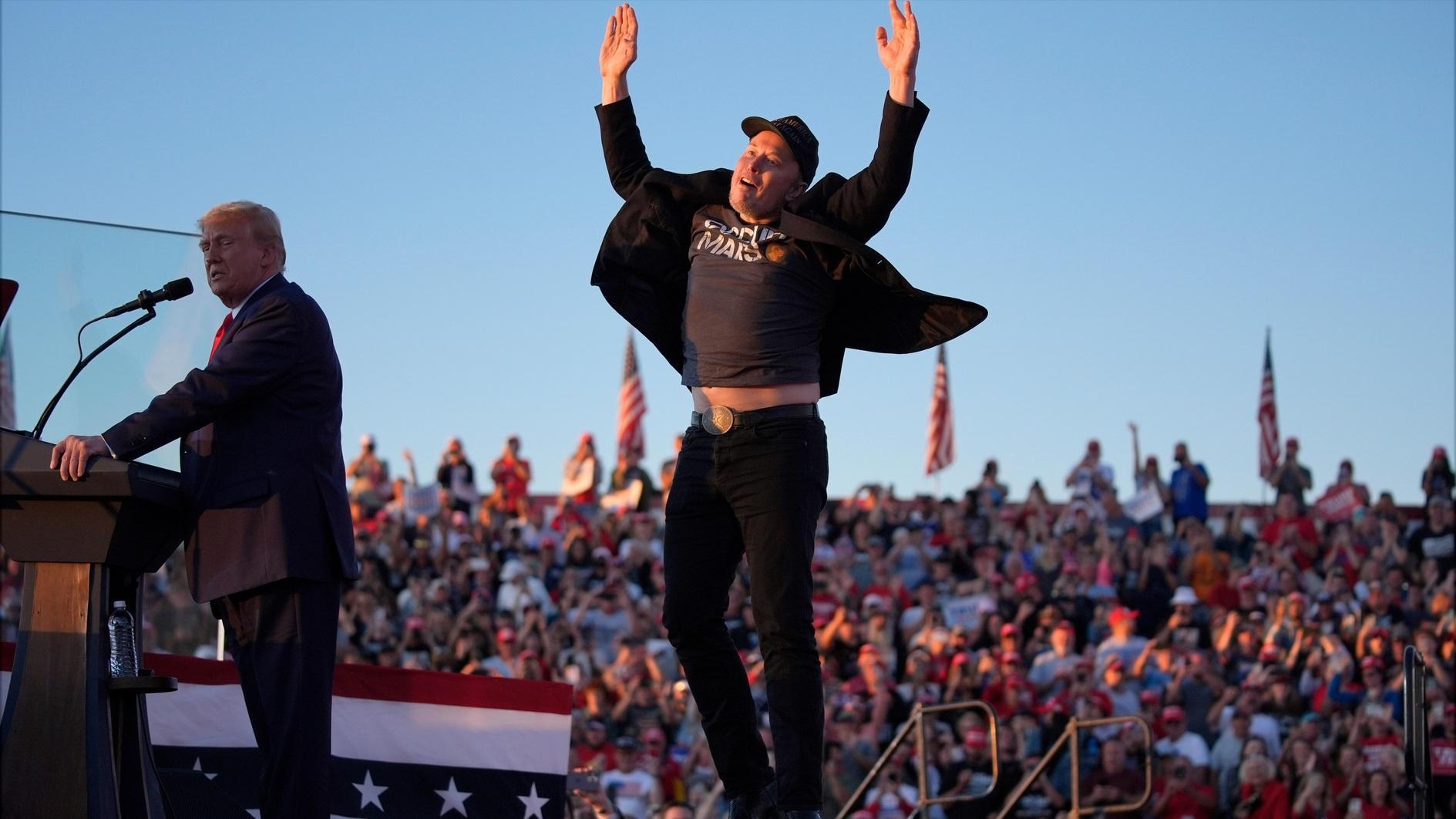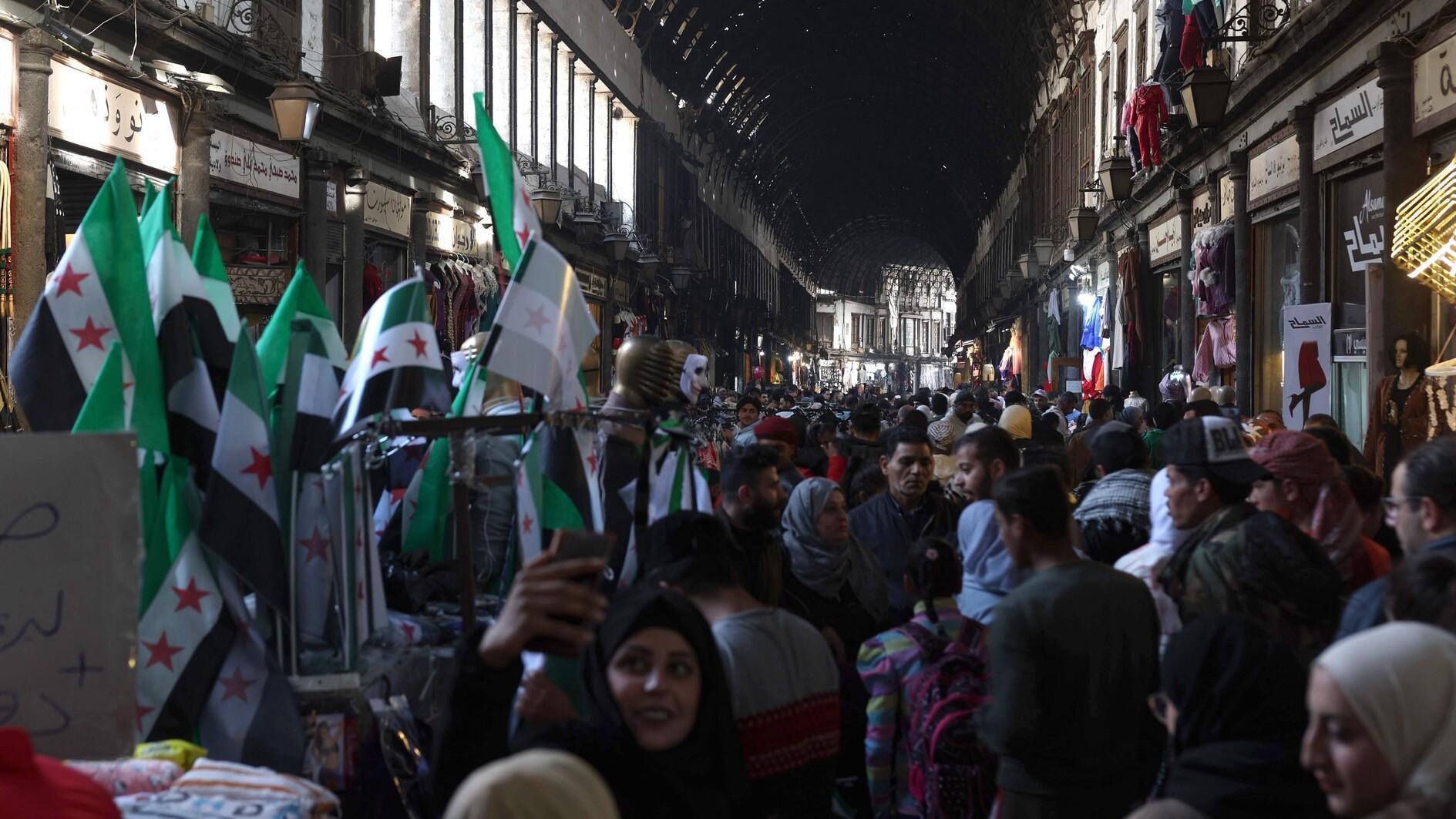Obama rallies coalition commanders against ISIL jihadists
WASHINGTON - Agence France-Presse

US President Obama speaks at a meeting with more than 20 foreign defense chiefs to discuss the coalition efforts in the ongoing campaign against ISIL at Joint Base Andrews in Washington, Oct. 14. REUTERS Photo
President Barack Obama attempted to rally allied commanders around his emerging strategy to defeat Islamic State in Iraq and the Levant (ISIL) on Oct. 14, as the U.S.-led air armada stepped up its raids in Syria.Coalition jets carried out two dozen strikes to relieve pressure on Kobane, but Obama admitted to deep concern about the Syrian border town's fate and he warned of a long campaign ahead.
In Washington, the president and the U.S. military's top officer General Martin Dempsey met senior commanders from more than 20 Western and Arab allies involved in the campaign.
"One of the things that has emerged from the discussions, both before I came and during my visit here, is that this is going to be a long-term campaign," Obama warned.
"There are not quick fixes involved. We're still at the early stages," he said, explaining that efforts were focused on breaking the siege of Kobane and on halting the ISIL advance in western Iraq.
"As with any military effort, there will be days of progress and there are going to be periods of setback, but our coalition is united behind this long-term effort," he added.
A U.S. military official, summing up the situation, said: "the coalition has strategic momentum although ISIL has tactical momentum." ISIL, he added "is an adaptive enemy."
The coalition will also need to adapt "by leveraging all elements of power," he added, stressing that military action alone "will not be decisive."
The meeting of military chiefs from 22 countries also included representatives from Turkey and Saudi Arabia and was led by General Martin Dempsey, chairman of the U.S. Joint Chiefs of Staff.
Lt. Gen. Erdal Öztürk, the head of the Chief of Staff’s Operation Division, represents Turkey at the meeting as Necdet Özel, the chief of staff, did not participate reportedly due to his busy schedule and growing security threats immediately across from the Turkish border.
The military meeting, at an airbase outside Washington, came after allied warplanes carried out its latest raids: 21 strikes over two days around Kobane, a Kurdish town on Syria's border with Turkey.
The bombing was designed to halt an ISIL offensive which has seen jihadists push into the town, threatening a massacre under the noses of the Turkish troops and world media watching from the border.
A Syrian exile rights group reported that the latest strikes had at least saved Kobane from "falling entirely into the jihadists' hands," but Obama admitted he was still worried.
"At this point we're also focused on the fighting that is taking place in Iraq's Anbar province, and we're deeply concerned about the situation in and around the Syrian town of Kobane," Obama said.
ISIL fighters are now in almost complete control of Sunni-majority Anbar, Iraq's largest province, and are closing in on the western outskirts of Baghdad, headquarters of the Shiite-led government.
Ankara allows use of 'facilities'
The talks marked the first time high-ranking officers from so many nations have come together since the U.S.-led coalition was formed in September and which now, on paper, includes about 60 countries.
Turkey, which has faced a three-decade Kurdish insurgency, has tightened security of its porous Syrian border after the fighting in Kobane sparked the exodus of 200,000 refugees.
France's President François Hollande urged the West's NATO ally to open the border to allow aid to reach Kurdish fighters mounting a desperate defense of the town, which "could fall at any moment."
And U.S. Secretary of State John Kerry said that Ankara had at least allowed the U.S.-led coalition use of "certain facilities" while agreeing to host and train Syrian fighters opposed to the ISIL group.
"Turkey has agreed to host and train and equip people," Kerry told a press conference after meeting with Russian Foreign Minister Sergei Lavrov in Paris.
"It certainly has allowed the use of certain facilities, and we don't need to get into specifics except to say that I don't believe there is any discrepancy with respect to what they will or won't do."
He said that Turkey, a NATO ally which borders both Iraq and Syria, would define its role "on their timetable as we go forward in assigning and undertaking responsibilities within the coalition."
"Turkey obviously has a very important role to play in this process going forward," added the top U.S. diplomat.
Kurdish fighters were trying to push into the eastern sector of the town, under ISIL control, said the Syrian Observatory for Human Rights, a British-based rights group which has a wide network of sources inside Syria.
Meanwhile, Iraqi forces are reported to be under intensifying pressure in Anbar province, where the town of Heet fell to the ISIL advance on Oct. 13, according to Iraqi military sources.
Pro-government forces in northern Iraq were under pressure near the strategic Baiji oil refinery, where U.S. aircraft Sunday dropped supplies including food, water and ammunition to Iraqi troops for the first time.
In Baghdad, an Iraqi lawmaker and prominent Shiite militia leader, Ahmed al-Khafaji, was one of at least 21 people killed by a suicide car bomb in the Shiite neighborhood of Kadhimiyah. The third bombing in Kadhimiyah in four days, Khafaji's killing was immediately claimed by ISIL.
















